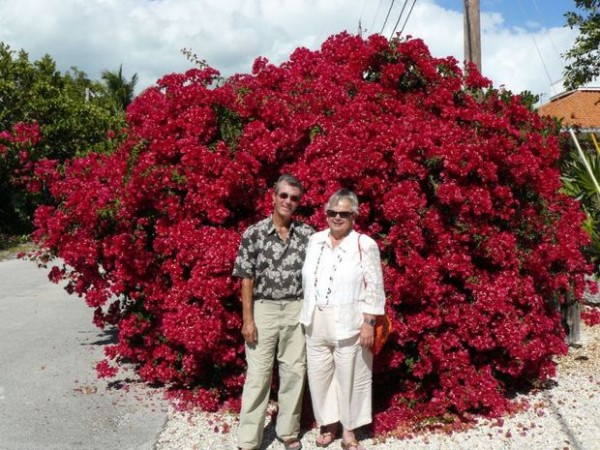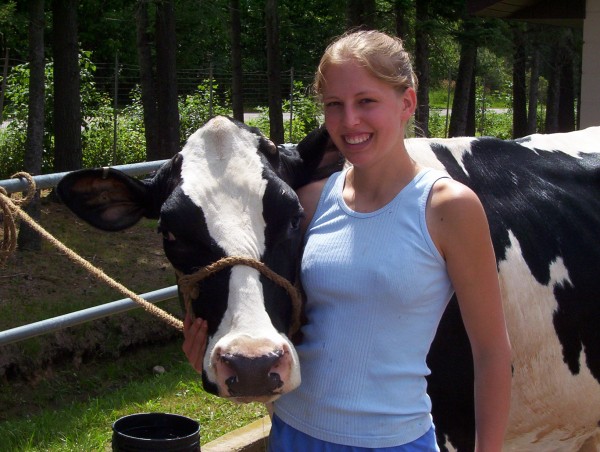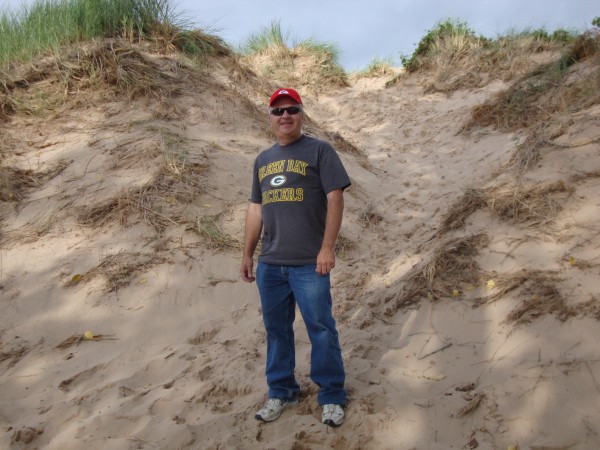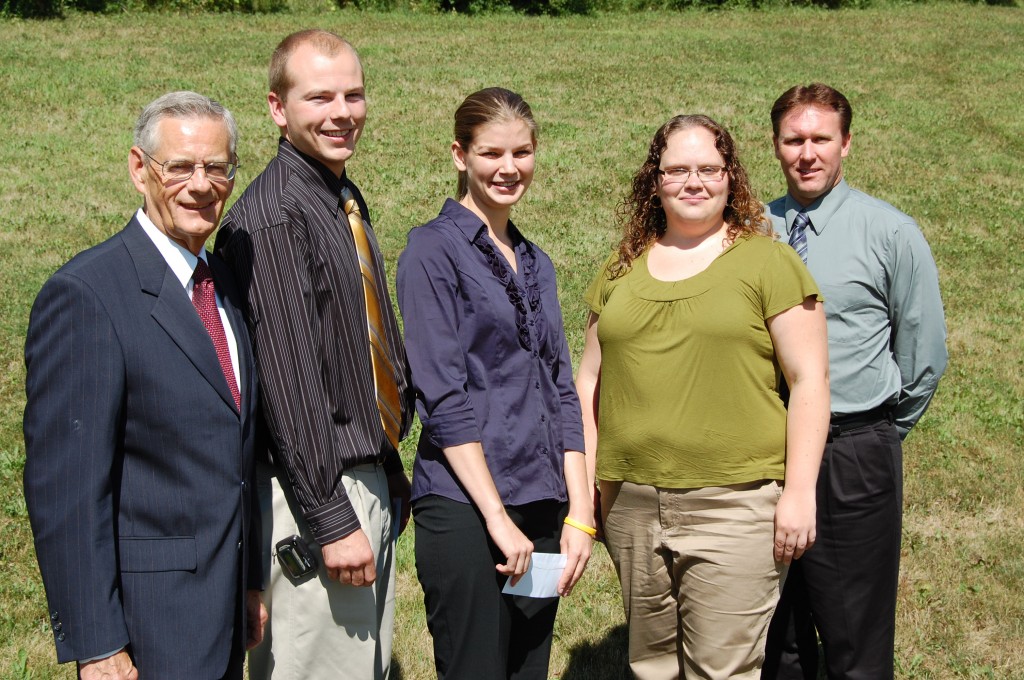Five Finalists Selected in “New Year, New Logo” Contest
MADISON, Wisconsin [March 25, 2019] – Nearly 30 outstanding entries were received for the Wisconsin Rural Opportunities Foundation, Inc. (WROF, Inc.) “New Year, New Look” logo design contest. A $500 scholarship will be awarded to the winning design that best reflects the organization’s mission and vision. The Foundation accepts contributions for, and provides awards to, rural Wisconsin students to attend post high school educational experiences that will enhance their impact back in rural Wisconsin.
The WROF, Inc. Marketing Committee is proud to announce the top five logo design submissions and requests the public’s help in narrowing down the choices prior to presenting the final top three designs to the Board of Directors for final selection.
Sara Schoenborn, Marketing Committee Chair, noted: “Every entry was incredible and we had an extremely difficult time choosing just five top entries. We are excited to involve the public in this important decision.”
You can view the entries and vote for the top three at https://www.facebook.com/wrof.org/ beginning March 27. The voting will end midnight Friday, April 19.
The five finalists are:
- Adam Alan Nelson – Senior in Digital & Visual Communications at the University of Wisconsin-Milwaukee
- Gabe Ballweg – Junior in Design and Visual Communication at the University of Wisconsin–Milwaukee
- Maddy Sharkey – Junior in Design & Visual Communications at the University of Wisconsin–Milwaukee
- Ryan Yaeger – Senior in Graphic Design Program at Madison College
- Sarah Weh – Sophomore in Web Design and Development at Edgewood College
The WROF, Inc. Board of Directors will make the final selection at their April 25th board meeting and the winner will be announced in early May. Stay tuned and vote for your favorite online. Visit www.wrof.org to learn more.
Happy Holidays

WROF Establishes Renk Legacy Award
MADISON, Wis. (February 20, 2018) – In recognition of the Renk Family’s extraordinary service to rural Wisconsin, the Wisconsin Rural Opportunities Foundation, Inc. (WROF) established the Renk Legacy Award.
Based on Sun Prairie-based Renk family members’ leadership of WROF and many contributions to advancing education that addresses the evolving needs of rural Wisconsin, the award will be given at board discretion.
In a resolution inaugurating the award, the WROF board noted the Renk family’s history in Wisconsin agriculture, innovation, forward thinking and efforts to establish and grow WROF.
WROF was established as the Wisconsin Rural Rehabilitation Corporation in 1934 by the Federal Emergency Relief Administration. Its purpose then was to purchase FHA guaranteed farm loans to stimulate the agricultural economy following the Great Depression.
During the decades that followed, it evolved into today’s Foundation supporting educational opportunities for rural Wisconsin citizens at a variety of educational institutions throughout the State of Wisconsin.
With the leadership of Walter Renk in the 1970s, the organization that is today WROF moved to invest more in the people who were striving to rekindle and expand a vibrant agricultural enterprise and a prosperous rural Wisconsin. It launched a comprehensive educational support program, providing scholarships and loans that are administered through several Wisconsin schools of higher education.
In the 1990s, with Richard Renk’s leadership, the organization updated its name to the Wisconsin Rural Opportunities Foundation, Inc. to more properly reflect its expanded scope and service.
In response to an interest from individuals and corporations to invest and expand the organization’s work, the Wisconsin Rural Opportunities Foundation, Inc. converted from a 501(c)(4) into a 501(c)(3) charitable foundation, so it could accept tax-deductible gifts and contributions.
The Renk family has called Wisconsin home since 1836 when Joseph and Katherina Renk came here to farm after leaving Germany. Over the years the farm slowly grew and in 1936 the farm under the ownership of William, Joseph’s grandson, and William’s two sons Walter and Wilbur, became the first family farm to incorporate in the U.S.
The Renk Seed Company has at one time or another raised sheep, hogs, dairy, and beef in addition to selling corn, soybeans, wheat, oats, alfalfa and grasses. Renk Seed still farms to this day producing the vast majority of what it sells.
The Renk farm had the first silo erected in Dane County in 1898, had one of the first tile drainage systems installed in Wisconsin in 1916 and had the first dairy herd to go on DHIA in Wisconsin. When universities started to advocate hybrid corn in the 1930s, Renk Seed was in the forefront, growing and selling hybrid seed corn — the cornerstone of its business today.
Renk Seed did groundbreaking work on narrow-row corn in the late 1960s. The Renk farm was one of the first to adopt no-till in its area. The seed company was one of the first to offer Farm Plan, first to use a robotic palletizer and first to offer radar-in-motion and commodity markets on its website.
William Renk helped set up the Production Credit Association in Wisconsin and Michigan. Wilbur Renk was one of the founding members of the World Dairy Expo. Walter and Richard Renk were instrumental in starting the UW-Madison Veterinary School and started an agriculture business degree at the UW.
“The Renk Family has been committed to making rural Wisconsin stronger through education for many years,” noted Carol Ward Knox, president of the WROF board. “It’s an honor to recognize their many contributions with this award.”
Four selected for Wisconsin Rural Opportunities Foundation Board
MADISON, Wis.– Joan Behr, Ann McDonald, Sara Schoenborn and Max Wenck have been selected to provide vision and leadership on the Wisconsin Rural Opportunities Foundation, Inc. (WROF) Board of Directors.
For over 80 years the WROF has made a tangible, positive impact on Wisconsin’s rural enterprise. Over $6,000,000 has been awarded to over 6,000 recipients at more than 30 different Wisconsin educational institutions and programs.
For more than 30 years, Joan Behr served in various capacities with Foremost Farms USA, completing her work there as Sr. Director of Corporate Communications & Brand Management. There she was responsible for internal, external and marketing communications, brand management and crisis communications.
Ann McDonald is the Business Development Lead for The American Dairy Coalition. In her position, McDonald leads membership growth and renewal on a national level, plans and executes ADC events, collaborates on strategic planning and marketing for organization goals, growth and publicity and evaluates partner opportunities.
Sara Schoenborn is the Director of Communications for the Cooperative Network, where she manages the organization’s branding, public & media relations and event marketing, plans the annual Co-op Communicators Workshop and co-leads the national “Co-op Month Initiative.” Prior to joining Cooperative Network, she served as Executive Director of the Wisconsin FFA Foundation.
Since June 2005, Max Wenck has served as Partner and Director of the Morgan & Myers Inc.’s Agriculture and Pasture-to-Plate practices and provides counsel to the Morgan & Myers Inc.’s Food, Health & Nutrition practice. Before joining Morgan & Myers, Wenck was with Dekalb Plant Genetics, where he led corn advertising and marketing activities for the U.S. business team.
UW-Madison opens science labs to rural Wisconsin students
UW Madison Opens Science Labs to Rural Wisconsin Students
July 18, 2015 7:45 am • By Cassidy McDonald | Wisconsin State Journal
Twenty small-town Wisconsin high school students and teachers, alongside UW-Madison students and researchers, donned lab coats and blue plastic gloves at the Wisconsin Institutes for Discovery to experiment with cryopreservation and live human stem cells.
The experience was a part of a free, four-day camp hosted by the Morgridge Institute for Research, which encourages careers in science and aims to give small-town students chances they wouldn’t ordinarily get at home.
As rural populations shrink, high schools struggle to staff science departments, according to Marcy Heim, executive director of the Wisconsin Rural Opportunities foundation, which helps fund the program.
Linda Dworschack teaches high school and middle school science in Soldiers Grove, which has a population just shy of 600. She said she jumped at an opportunity to bring five of her brightest students.
“My favorite part is seeing how excited they are,” she said.
Dworschack said the first night of camp, her high school students overheard a late-night conversation in a university dorm room — about stem cell research.
“We’re not used to that level of interest in North Crawford,” Dworschack said.
The camp exposes young students to groundbreaking stem cell research and regenerative medicine, but its main goal, said event coordinator Dan Murphy, is to paint a realistic picture of a career in science.
“If they get that, they’ll be really curious and inspired,” Murphy said, “then it will all flow from there.”
A secondary goal is to encourage students to attend college — ideally a University of Wisconsin System school.
In a lecture Tuesday, Bill Murphy, a co-director of the campus Stem Cell and Regenerative Medicine Center and professor of biomedical engineering, outlined recent advances in stem cell research, many of which had UW-Madison origins.
He explained how researchers turn stem cells into brain cells in order to model diseases, and how doctors will soon be able to replace missing or cancerous jaw bones with bone marrow grown from stem cells.
Students also heard from national names, such as bioethics expert Pilar Ossorio — who has advised the FDA and the Secretary of Health and Human Services — and chemistry professor Randy Goldsmith, whose former adviser won the most recent Nobel prize in chemistry.
Casual interactions with graduate and college students may have been an equally valuable learning experience.
Tomah High School teacher Sarah Hughes said young researchers lent insights about majors, dorms and college life.
“[The students] are wearing lab coats. The scientists are wearing lab coats,” Murphy said. “They start to think of themselves as a scientist.”
Prentice High School senior Jesse Isaacson experimented with liquid nitrogen Tuesday morning, under the guidance of college-aged interns, freezing whole bananas and turning soft, fresh flowers hard and crunchable.
When he saw some of the researchers dipping more bananas into the substance during a break, he joked, “You’re just having fun now. You guys like this too much.”
“You caught us,” replied Federico Barrionuevo, a UW-Madison undergraduate student and an outreach intern at the Discovery Building.
“It takes away some of the scariness of great big Madison,” Heim said. “We have to keep reminding rural Wisconsin that UW-Madison, yes, is a world-renowned university, but it’s also their university.”
But the camp doesn’t just aim to pluck youths off farms and move them to college labs in the city, Heim said.
It also seeks to support rural schools.
“If you lose your high school in rural Wisconsin, you’ve really lost it,” she said. “The high school is really the hub of vitality … Part of what keeps those high schools strong is having a strong curriculum.”
That’s why teachers accompany their students to the camp. Dworschack said her high school students will present what they learned to younger students in Soldiers Grove this fall.
Dan Murphy said the camp was conceived under the Wisconsin Idea: “UW can reach out to every home. The borders of UW are the state borders.”
Renks support rural Wisconsin through Wisconsin Rural Opportunities Foundation
By Sara Schoenborn, Agri-View Assistant Editor
 For Richard and Sharon Renk, the most important things are family and giving back to others.
For Richard and Sharon Renk, the most important things are family and giving back to others.
Both natives of Sun Prairie, the two got married when Richard was in college and are celebrating their 55th wedding anniversary this year.
Richard says his family’s farming history dates back to 1846 when his ancestors came over and settled in the Sun Prairie area. “It’s very much a farming community,” he says, adding that his grandfather completed the UW-Madison Farm and Industry Short Course in 1898 and a number of those in the generations that followed graduated from UW-Madison.
“The Renk Seed Corporation – or William F. Renk and Sons – was started in 1936,” Richard says, “so we are the oldest farm family corporation in the United States.”
Richard adds the business runs as a typical corporation with a board of directors and board meetings: “It’s not about family, it’s about business. That’s how you survive,” he notes.
Richard still helps out as needed, but wouldn’t call his involvement fulltime since the business made the official transfer to the next generation.
In the beginning, the family was involved with livestock for a number of years, including purebred cattle, sheep, and hogs. In 1992 they ended the livestock business and became strictly a seed company.
“Our market is pretty much the upper Midwest and we’re running now from Nebraska through Michigan and the upper tier of states in that area,” Richard says. “We’ve grown a lot in the last 10 years – we’ve probably quadrupled our sales in that time.”
Richard says the basis of the organization is customer service and a family corporation. “We have a lot of loyalty in our organization,” he notes.
Richard’s father Walter served for a number of years as president and chairman of the board of directors for the Wisconsin Rural Rehabilitation Corporation, an organization established in 1934 by the Federal Emergency Relief Administration.
The organization was to “purchase FHA guaranteed farm loans to stimulate the agricultural economy following the Great Depression.”
After that need was gone, Richard says, the organization evolved into the Wisconsin Rural Opportunities Foundation, Inc. (WROF), a 501(c)(3), invested in “supporting educational opportunities for rural Wisconsin citizens at a vast variety of educational institutions throughout the State of Wisconsin.”
“We’ve tried to keep it going and expand our footprint ever since,” Richard says. “It’s an uphill battle because we have limitations on how we can invest the original government money so we have a limited amount of income. Tuitions keep increasing and inflation is very hard for us to keep up with to have the impact and to benefit the students like we’d like to.”
The organization received a finite amount of federal funds, so Richard says growth comes from individual contributions. “With financial gifts to the WROF, we will be able to expand the role of WROF so that we can have more of an impact on these students. Tuition is getting so high and the number of students who need our help grows each year.”
Richard says WROF has relationships with all of the schools in the Wisconsin system, the Wisconsin Rural Leadership Program, 4-H, FFA and the vocational technical college system. Scholarships are targeted to those with rural backgrounds and Wisconsin residents.
“That’s our footprint,” Richard says. “We try to fund vocations that would lead back to rural Wisconsin.”
Sharon adds that the students’ chosen career fields are not restricted to those in agriculture. Future doctors, nurses, mechanics, etc. can also apply – anything that “would be helpful in the more rural communities.” WROF also has a veterinary school loan program that offers loan forgiveness if the student stays in a large animal practice in rural Wisconsin.
“Sharon and I are both very committed to advancing education,” Richard says. “You can’t compete in society or in the world anymore without education and a lot of it. It’s a very competitive world out there.”
“WROF funds give students the opportunities that they may not have otherwise and the people who apply for these scholarships tend to be rural oriented,” Sharon says. “If they do stay in Wisconsin it’s just enriching our whole state and helping everyone they ever encounter.”
One of the greatest rewards Sharon and Richard receive in return is meeting recipients years later.
“You meet those people and see how articulate they are, how involved they are in their community – the impact they are making – that’s what really pumps me up,” Richard says. “It’s just inspirational.” And, the recipients are so grateful for the help they receive.
The door is open to any amount of help, and matching opportunities exist, for those who wish to be a part of WROF and their mission.
“This is an opportunity and vehicle for others to be able to participate and help on their own personal basis,” Sharon says. “The average Wisconsin person who has this type of an interest could make quite an impact. We are asking others to join us in making this possible.”
Richard agrees, “I think the key message is we need to support our rural young people in furthering their education and it’s not just about the individual – it’s about what is good for Wisconsin and our competitive spot in the world economy. Education is everything.”
WROF Vet Loan Recipient Heather Blasel
 Heather Blasel graduated from Medford Area Senior High School in 2001, from the UW-Madison in 2005 with a bachelor’s degree in dairy science, and from the UW-Madison School of Veterinary Medicine in 2009. She is a past recipient of a WROF, Inc. Veterinary Loan Award.
Heather Blasel graduated from Medford Area Senior High School in 2001, from the UW-Madison in 2005 with a bachelor’s degree in dairy science, and from the UW-Madison School of Veterinary Medicine in 2009. She is a past recipient of a WROF, Inc. Veterinary Loan Award.
Heather is now large animal veterinarian, practicing in Prairie du Sac, Wisconsin. “My long-term goal is to become an approachable, knowledgeable, and influential resource for dairy producers and to make a positive impact on the dairy industry in my area,” says Heather.
In her spare time, Heather enjoys spending time on my family’s 200-cow dairy farm in Stetsonville, helping out with barn chores and field work. She makes the 3-hour trip as often as possible.
Award Recipient Bob Panzer Shares His Story
 It’s hard to believe it was 35 years ago that I was awarded a WROF, Inc. scholarship. It paid all of my tuition for my first year at UW River Falls. What a gift! I presently work for a small start-up called Verity Resources, which is part of Landmark Cooperative Services in Cottage Grove, Wisconsin.
It’s hard to believe it was 35 years ago that I was awarded a WROF, Inc. scholarship. It paid all of my tuition for my first year at UW River Falls. What a gift! I presently work for a small start-up called Verity Resources, which is part of Landmark Cooperative Services in Cottage Grove, Wisconsin.
I have done many things over the years. I currently own a farm and serve on a school board. I sincerely hope you continue to support young people to help build a better Wisconsin.
2011 WROF Vet Loan Recipients

Wisconsin Rural Opportunities Foundation Awards Loans
Wisconsin Rural Opportunities Foundation, Inc. (WROF) was proud to announce its 2011 Veterinary Loan Award winners. Each year loans are awarded to students who plan to practice veterinary medicine and work in large animal veterinary practices in rural Wisconsin communities. These loans are unique in that part of the loan is forgiven based on each year that the recipient actually serves rural Wisconsin.
The Wisconsin Rural Opportunities Foundation, Inc. recently presented loans to four University of Wisconsin-Madison students. On hand for the presentation were WROF Board President James Caldwell, 2011 WROF loan recipients John Kornmann of Fitchburg, Whitney Auth of Madison, and Danielle Broeren of Madison, and WROF General Manager Mark Clarke. Missing from the photo: Loan recipient Jessica Southwick of Evansville.
2011 Veterinary Loan Award Winners Announced
FOR IMMEDIATE RELEASE
Wednesday, August 11, 2011
CONTACT: MARK CLARKE, 608-224-0292
OR VIA EMAIL AT: mclarke@wdexpo.com
WISCONSIN RURAL OPPORTUNITIES FOUNDATION AWARDS LOANS
MADISON, WIS. – Wisconsin Rural Opportunities Foundation, Inc. (WROF) was proud to announce its 2011 Veterinary Loan Award winners. Each year loans are awarded to students who plan to practice veterinary medicine and work in large animal veterinary practices in rural Wisconsin communities. These loans are unique in that part of the loan is forgiven based on each year that the recipient actually serves rural Wisconsin.
On Wednesday, August 10, WROF presented loans to each of four University of Wisconsin-Madison Veterinary Medicine students. Whitney Auth, originally from the Durand area, plans to start her career following graduation next spring as a bovine veterinary. Danielle Broeren, who hails from the Kaukauna area, wants to work with large animals when she earns her degree. Ellsworth native, Jonathan Kornmann, has the desire to work in a progressive food animal medicine practice. Jessica Southwick, from West Salem, is primarily interested in working with cattle, specifically dairy cattle. These students were selected from a deep pool of highly qualified candidates for these WROF loans.
Since its inception, the Foundation has empowered over 5,000 individuals with over $5.8 million in scholarships and grants in agricultural and rural health care education in more than 30 Wisconsin institutions and programs. As a 501(c) (3) charitable foundation, WROF has made a tangible, positive impact on the economic health and quality of life in the state’s areas. For more information, visit www.wrof.org .
Posted in Award Recipient | No Comments »

